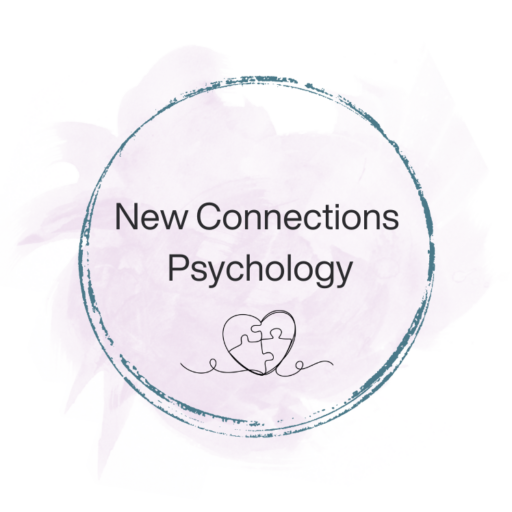Introduction
Are you able to distinguish between mental health myths and facts? Discover the truth behind the most prevalent misconceptions surrounding mental health.
Myth: Mental health problems don’t affect me.
Fact: In reality, mental health problems are highly prevalent. Consider these statistics from 2014:
– One in five American adults experienced a mental health issue.
– One in 10 young individuals went through a period of major depression.
– One in 25 Americans lived with a serious mental illness, such as schizophrenia, bipolar disorder, or major depression.
Suicide stands as the 10th leading cause of death in the United States, claiming over 41,000 lives annually—more than double the number lost to homicide. Educate yourself further on mental health problems.
Myth: Children don’t experience mental health problems.
Fact: Even very young children may display early warning signs of mental health concerns. These problems can often be clinically diagnosed and stem from the interplay of biological, psychological, and social factors.
Approximately half of all mental health disorders manifest their initial signs before the age of 14, with three-quarters of cases emerging before age 24.
Sadly, less than 20% of children and adolescents with diagnosable mental health problems receive the necessary treatment. Early support for mental health can prevent these issues from hindering other developmental needs.
Myth: People with mental health problems are violent and unpredictable.
Fact: Contrary to popular belief, most individuals with mental health problems are no more prone to violence than anyone else. Most individuals with mental illness are non-violent, and only 3%-5% of violent acts can be attributed to those living with a serious mental illness. In fact, people with severe mental illnesses are over 10 times more likely to become victims of violent crime than the general population. It is highly likely that you know someone with a mental health problem without even realizing it, as many of them lead active and productive lives within our communities.
Myth: People with mental health needs cannot handle the stress of holding down a job, even if they are managing their mental illness.
Fact: People with mental health problems are equally capable of productivity in the workplace. Employers who hire individuals with mental health problems report good attendance, punctuality, motivation, and job tenure equal to or greater than that of other employees.
When individuals with mental health problems receive effective treatment, it leads to:
– Lower overall medical costs.
– Increased productivity.
– Reduced absenteeism.
– Decreased disability costs.
Myth: Mental health problems stem from personality weakness or character flaws. Those with mental health problems can overcome them if they try hard enough.
Fact: Mental health problems have no connection to laziness or weakness, and many people require assistance to recover. Various factors contribute to mental health problems, including:
– Biological factors like genetics, physical illness, injury, or brain chemistry.
– Life experiences such as trauma or a history of abuse.
– Family history of mental health problems.
People with mental health problems can experience improvement and even achieve complete recovery.
Supporting Individuals with Mental Health Problems
Myth: There is no hope for people with mental health problems. Once a friend or family member develops mental health problems, they will never fully recover.
Fact: Studies demonstrate that individuals with mental health problems can and do get better, often achieving complete recovery. Recovery refers to the process of individuals being able to live, work, learn, and actively participate in their communities. There are more treatments, services, and community support systems available than ever before, and they are effective.
Myth: Therapy and self-help efforts are futile. Why bother when medication is an option?
Fact: The treatment of mental health problems varies depending on the individual and may include medication, therapy, or a combination of both. Many individuals engage with a support system throughout the healing and recovery journey.
Myth: I can’t do anything to help someone with a mental health problem.
Fact: Friends and loved ones can make a significant difference. Only 44% of adults with diagnosable mental health problems and less than 20% of children and adolescents receive the required treatment. Friends and family play crucial roles in assisting individuals in accessing the necessary treatment and services. You can support someone by:
– Reaching out and making it known that you are available to help.
– Assisting them in accessing mental health services.
– Educating yourself and dispelling misconceptions about mental health, especially when encountering false information.
– Treating them with respect, just as you would anyone else.
– Refraining from defining them solely by their diagnosis or using derogatory labels like “crazy.”
Myth: It is impossible to prevent mental illnesses. Prevention efforts are futile.
Fact: Prevention of mental, emotional, and behavioural disorders focuses on addressing known risk factors such as exposure to trauma, which can impact the likelihood of children, youth, and young adults developing mental health problems. Promoting the social-emotional well-being of children and youth leads to:
– Enhanced overall productivity.
– Improved educational outcomes.
– Lower crime rates.
– Stronger economies.
– Reduced healthcare costs.
– Enhanced quality of life.
– Increased lifespan.
– Improved family life.
By debunking mental health myths and promoting accurate information, we can contribute to a more compassionate and informed society. Let’s support each other and create a world where mental health is understood and prioritized.
Online Therapy
Online therapy, also known as teletherapy or telehealth, is a convenient and accessible form of mental health support that has gained popularity in recent years. Through secure and confidential video conferencing platforms, individuals can connect with licensed therapists from the comfort of their own homes. Online therapy eliminates geographical barriers, allowing people to access professional help regardless of their location. It provides flexibility in scheduling appointments and can be particularly beneficial for those with mobility limitations or busy lifestyles. Online therapy offers a wide range of therapeutic modalities, including cognitive-behavioural therapy, mindfulness-based therapy, and psychodynamic therapy, among others. It has proven to be effective in treating various mental health concerns, offering a supportive and confidential space for individuals to explore their thoughts, emotions, and challenges.
Conclusion
In conclusion, debunking mental health myths and understanding the facts is crucial for promoting a compassionate and informed society. Mental health problems are prevalent and can affect anyone, regardless of age or background. It is important to recognize that individuals with mental health issues are not inherently violent or incapable of leading fulfilling lives. With the right support and treatment, people can recover and thrive. Online therapy has emerged as a convenient and accessible option, breaking down barriers to mental health care and providing individuals with flexible and effective support. By embracing accurate information, supporting those in need, and prioritizing mental health, we can foster a society that promotes well-being and understanding for all.

